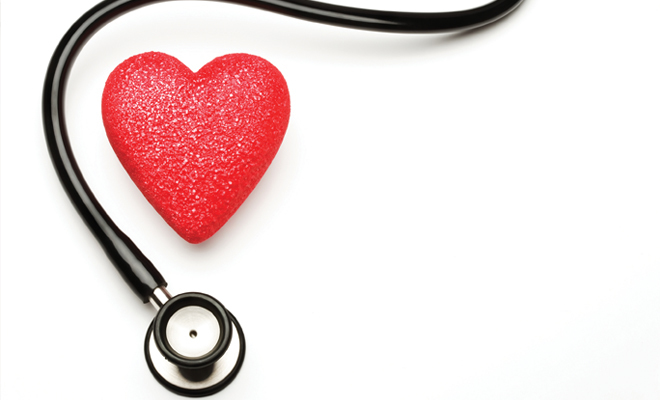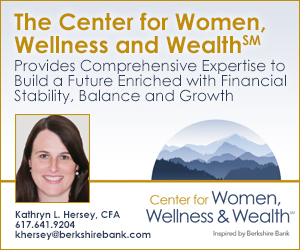
Ellis Medicine’s Dr. Andi Nawab: Know Your Cardiac Risk Factors
Awareness, awareness, awareness!
That is paramount in the message Dr. Andi Nawab, director of Ellis Medicine’s Women and Heart Disease program, would like to impress upon all women. The disparity between the ways heart failure affects women versus men is still very wide and deep. Hispanic, African-American and younger women also experience great disparity with regard to the effect of heart problems.
Woman-Specific Risks
“There are certain heart conditions specific to women,” Dr. Nawab explained. “Many don’t realize the stress pregnancy and childbirth can cause peripartum cardiomyopathy, which is the muscle dysfunction that can occur when a woman delivers her baby. The heart reacts in different ways. This can occur from three months prior to giving birth to three months postpartum.”
Other signals of heart problems can come from symptoms and diseases not usually talked about during an average doctor visit for women, such as rheumatoid arthritis, lupus, irregular periods or no periods, infertility problems or early menopause before age 40. “This is called polycystic disorder, when women go through early menopause. You lose the hormonal advantage as compared to other women your age. Your heart acts as if it is ten years older, so you can be at risk of heart attack at age 50,” she noted. “The American Heart Association, American Stroke Association and the Go Red for Women campaigns are great, and many new facts are being discovered every day.”
Furthermore, if you are a female smoker, you are 55 percent more likely to have a heart attack than a male, and if you are depressed, you are 48 percent more likely than a male. One in three women will die of a cardiac-related event, and a woman dies every minute from heart-related problems, a morbidity level that’s five times higher than breast cancer. A regular physical doesn’t include heart screening.
Learn Your Risk Factors
How do you find out if you have any of these risk factors present? Have a $25 cardiac screening with Dr. Nawab and her team. “This is less than the cost of a manicure!” she emphasized. “During your initial screening, we get your depression score, cholesterol level, blood pressure, diabetes and health analysis and more. Women should ideally have a screening after their first child is born. Subsequently, a woman should have one every two years if her family has a history of heart disease, and every five to ten years if there’s not a history.”
Dr. Nawab added that ten percent more females than males will die from heart attack if they have a heart attack at age 55. Another 10 percent more females than males will die in the next five years. And 15 percent more women will be diagnosed with heart failure than males.
“It’s so important to prevent the first presentation of a problem before the muscle damage happens as result of a heart attack,” she insisted. “Once the event happens, it’s often too late for many women.”
Awareness of Additional Concerns
Depression is a major risk factor for women. A recent study showed that 80 percent of females will suffer from depression after age 60, but young females who are depressed are also at risk. The condition Takotsubo cardiomyopathy, also known as stress cardiomyopathy, is a type of non-ischemic cardiomyopathy in which there is a sudden temporary weakening of the muscular portion of the heart. This weakening may be triggered by emotional stress, such as the death of a loved one, a break-up or constant anxiety. This leads to one of the common names, broken heart syndrome. Stress cardiomyopathy is now a well-recognized cause of acute heart failure, lethal ventricular arrhythmias and ventricular rupture. The name Takotsubo syndrome comes from the Japanese word for a kind of octopus trap because the left ventricle takes on a shape resembling a fishing pot.
“This is not from the imagination; it is real. For example, your father or husband dies, and your heart function goes down drastically. If you don’t realize it, you can actually die, as more than 50 percent of women do in the first three months,” Dr. Nawab expounded. “If recognized, recovery occurrence is great through medication. I actually had a woman whose house had burned down develop heart problems!”
Females often underestimate issues such as sharp pain, shortness of breath, dizziness and chronic fatigue. Quitting smoking, maintaining a healthy weight, exercising, limiting sugar and sticking to a diet that includes more fish and vegetables are daily prohibitors. If you feel something is wrong, it is best to seek medical help.
“Take charge of your own body,” Dr. Nawab recommended. “We have a lot more different things happening in our bodies than our male counterparts do.” ■
How do you find out if you have any of these risk factors present?
Have a $25 cardiac screening with Dr. Nawab and her team. “This is less than the cost of a manicure!” she emphasized. “During your initial screening, we get your depression score, cholesterol level, blood pressure, diabetes and health analysis and more.”
For more information, visit ellismedicine.org and search on youtube for video DRD8CQGF9H4.







